Everything Bad Makes a Puzzle: Some Thoughts on Everything Bad is Good For You
 There’s a certain kind of structure I’ve lately begun to notice in certain novels. These books read like puzzles, telling one story directly and overtly while implying a second story, or highly variant reading of the first story, through carefully-placed gaps, contradictions, and seemingly-irrelevant details. Throwaway references in highly-disparate points of the book might imply a completely different way to read at least the plot and often the tone or theme. It’s something Gene Wolfe does a lot; other examples I’ve noticed lately are Joyce Carol Oates’ The Accursed, Helen Oyeyemi’s White is For Witching, and Caitlín Kiernan’s The Red Tree. I’d been trying to work out what to make of this ‘puzzlebook’ technique, when as it happened I read a completely different book that seemed to have something to say about this structure — among many other things.
There’s a certain kind of structure I’ve lately begun to notice in certain novels. These books read like puzzles, telling one story directly and overtly while implying a second story, or highly variant reading of the first story, through carefully-placed gaps, contradictions, and seemingly-irrelevant details. Throwaway references in highly-disparate points of the book might imply a completely different way to read at least the plot and often the tone or theme. It’s something Gene Wolfe does a lot; other examples I’ve noticed lately are Joyce Carol Oates’ The Accursed, Helen Oyeyemi’s White is For Witching, and Caitlín Kiernan’s The Red Tree. I’d been trying to work out what to make of this ‘puzzlebook’ technique, when as it happened I read a completely different book that seemed to have something to say about this structure — among many other things.
Steven Johnson’s 2005 non-fiction book Everything Bad Is Good For You is an argument about the structure and cognitive benefits of popular culture. Johnson suggests that video games, for example, sharpen certain kinds of problem-solving skills, and in general that the experience of games, TV shows, the internet, and to an extent film represents an engagement with increasing complexity. Most fascinating to me were his discussions of TV and of the way TV’s grown more structurally complex over the past few decades. He seems to me to have not only accurately identified how televised stories have changed but also by extension to have suggested how storytelling generally may be changing. And that in turn perhaps implies a broader context for the ‘puzzlebooks’ I seem to be coming across more and more often.
 Let me start with Johnson’s argument. He doesn’t go into a detailed history of the development of TV over the past three decades, but does briefly map a technological evolution from a pre-1980s marketplace that rewarded simplicity to a contemporary marketplace that rewards complexity. Thirty years ago, an episode of a given show was, effectively, rewarded based on how many people saw it on its first airing; so creators were primarily concerned with keeping viewers through that first watching and avoided anything that might challenge them or lose them. Today, says Johnson, with TiVo, DVDs, TV-on-demand, syndication over hundreds of cable channels, and any other number of other ways to access a show whenever the viewer wants, there’s a pressure to make episodes reward watching over and over again. To hook the viewer and encourage an ongoing interaction with the show. Johnson draws a link between the complexity of contemporary serialised TV and the rise of fan forums and websites that interrogate the ‘text’ of shows, digging out links and references. And he argues that the new marketplace encouraged new approaches to plotting and structure in TV writers, an increased willingness to skip from plot to plot.
Let me start with Johnson’s argument. He doesn’t go into a detailed history of the development of TV over the past three decades, but does briefly map a technological evolution from a pre-1980s marketplace that rewarded simplicity to a contemporary marketplace that rewards complexity. Thirty years ago, an episode of a given show was, effectively, rewarded based on how many people saw it on its first airing; so creators were primarily concerned with keeping viewers through that first watching and avoided anything that might challenge them or lose them. Today, says Johnson, with TiVo, DVDs, TV-on-demand, syndication over hundreds of cable channels, and any other number of other ways to access a show whenever the viewer wants, there’s a pressure to make episodes reward watching over and over again. To hook the viewer and encourage an ongoing interaction with the show. Johnson draws a link between the complexity of contemporary serialised TV and the rise of fan forums and websites that interrogate the ‘text’ of shows, digging out links and references. And he argues that the new marketplace encouraged new approaches to plotting and structure in TV writers, an increased willingness to skip from plot to plot.
Johnson’s careful not to make claims for the relative quality of newer and older shows. But I think he does very accurately define the way by which the techniques of TV plotting have expanded over the past few decades. He compares an episode of Dragnet to an episode of Hill Street Blues to an episode of The Sopranos and notes several technical changes that seem representative of the TV being made in their different eras: Dragnet has a single plot running through the episode, while Hill Street has multiple plots. So does The Sopranos, but unlike Hill Street (as Johnson views the shows) a single scene may advance more than one plot. The amount of characters grows, and the web of relationships among the characters becomes correspondingly more complex — not that the individual relationships are more or less profound, but that there’s a greater variety of relations for the viewer to keep track of as the number of characters increases.
 More: Johnson suggests that there’s less concern with immediate clarity in contemporary TV. He compares medical dramas then and now to show that while jargon in earlier shows was explained at once, contemporary shows will go longer before making clear to the audience what’s happening onscreen. He also sees an increase in the use of non-traditional story structures, referring to an episode of Seinfeld told in reverse chronological order — an episode that needs to be watched several times over to get the jokes. It’s difficult to see a show like, say, M*A*S*H doing something similar.
More: Johnson suggests that there’s less concern with immediate clarity in contemporary TV. He compares medical dramas then and now to show that while jargon in earlier shows was explained at once, contemporary shows will go longer before making clear to the audience what’s happening onscreen. He also sees an increase in the use of non-traditional story structures, referring to an episode of Seinfeld told in reverse chronological order — an episode that needs to be watched several times over to get the jokes. It’s difficult to see a show like, say, M*A*S*H doing something similar.
As Johnson notes, a fractured chronology is the sort of thing one used to see only in fairly recondite art-house cinema; now you can find it in sitcoms, as well as in Hollywood films like Memento (not a blockbuster, but next to the work of Alain Resnais it’s aimed at a broad audience). So to some extent he’s talking about techniques originally developed by an artistic avant-garde being assimilated and used by the mainstream. That’s a familiar process, but his point is that this has an effect on the audience, who, however unknowingly, are becoming used to an increasing level of structural complexity in the media they consume. Again, Johnson’s careful to distinguish what he’s doing from traditional criticism: he’s not evaluating the artistic worth of different approaches. He’s describing new techniques, suggesting why they’re emerging now, and speculating about their effect on the audience. Of course there are still shows based in formula, and shows that, let’s say gently, have no particular interest in pushing the markers of complexity in their medium. But overall I think Johnson’s identified something about the way TV has changed in my lifetime.
 One of the few points where Johnson does venture into evaluative criticism is when he observes that the use of multiple plot strands far predates Hill Street Blues, having been used on soap operas long before: “Bochco’s genius with Hill Street was to marry complex narrative structure with complex subject matter. Dallas had already shown that the extended, interwoven threads of the soap opera genre could survive the weeklong interruptions of a prime-time show, but the actual content of Dallas was fluff.” I can’t say I’m familiar with these shows, but I’m skeptical of the term ‘genius’ in this context. And his dismissal of the content of Dallas seems to be based on the fact that it didn’t deal with “complex social issues,” which to the best of my recollection it wasn’t trying to do; if you’re going to criticise a show it’s best to do so for failing on its own terms. But the reason I say all this is to observe that I wish Johnson had considered in more depth what it meant that soap operas had pioneering these plot innovations. Does it undermine his point that these ‘new’ techniques had been around for decades?
One of the few points where Johnson does venture into evaluative criticism is when he observes that the use of multiple plot strands far predates Hill Street Blues, having been used on soap operas long before: “Bochco’s genius with Hill Street was to marry complex narrative structure with complex subject matter. Dallas had already shown that the extended, interwoven threads of the soap opera genre could survive the weeklong interruptions of a prime-time show, but the actual content of Dallas was fluff.” I can’t say I’m familiar with these shows, but I’m skeptical of the term ‘genius’ in this context. And his dismissal of the content of Dallas seems to be based on the fact that it didn’t deal with “complex social issues,” which to the best of my recollection it wasn’t trying to do; if you’re going to criticise a show it’s best to do so for failing on its own terms. But the reason I say all this is to observe that I wish Johnson had considered in more depth what it meant that soap operas had pioneering these plot innovations. Does it undermine his point that these ‘new’ techniques had been around for decades?
Not necessarily. You can say that soap operas used that structure because it fit the demands of their particular audience. You could also perhaps argue that the soaps didn’t develop past a particular point. And I think it could be said that the difference between traditional soap operas and contemporary serial dramas is that soap operas were produced at high speed, with less sense of the overall shape of their structure in mind — like superhero comics in the 60s and 70s, the creators might know what they wanted to do with a specific storyline but weren’t thinking in terms of the overall structure of the series run as a whole. In terms of the individual episode, from my scanty knowledge of the form it seems like there’s less complexity of reference and few scenes that advance multiple plot strands. So there’s an argument to be made that soaps fit with Johnson’s thesis, but it would have been better for him to examine their structure more closely.
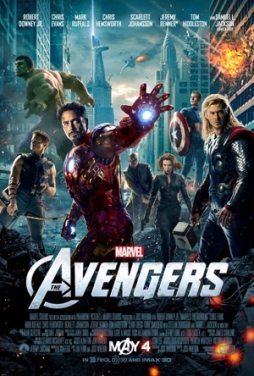 It also would have been nice to see him look at TV from around the world. Is the pattern he’s identified in the American TV industry replicated elsewhere? Or do different societies have their own structures? Is there anything about the experience of non-North American television that supports or challenges his ideas?
It also would have been nice to see him look at TV from around the world. Is the pattern he’s identified in the American TV industry replicated elsewhere? Or do different societies have their own structures? Is there anything about the experience of non-North American television that supports or challenges his ideas?
Still, when all’s said and done, I think Johnson’s book proves itself by its predictive value. As I said, it was published in 2005, which is far enough back that we can see some trends that’ve emerged since. To me, most of the trends in modern media (though not necessarily in television) seem to reinforce his sense of growing complexity. The rise of social media, an aggressively non-linear and multi-voiced form, is an example; there’s a greater sense of polyphony online now, not so much a different structure from articles and extended blog posts (like this one) as a different kind of connectivity between articles, boasting an increased level of interaction from users as well as exactly the kind of complex social web Johnson finds increasingly present in TV. The phenomenon of the mashup is also perhaps another example of complexity: the layering of music or video or storylines above each other to create something new. And then there’s film; Johnson notes some cinematic techniques and structures that have grown in complexity, citing films like Being John Malkovitch, Pulp Fiction, and Run Lola Run, but states that this doesn’t hold true for blockbusters: “At the top of the box office charts, I think it’s fair to say that Independence Day is no more complex than E.T.; nor is The Sixth Sense more challenging than The Exorcist.” But that’s changed in a big way now. The storytelling of the Marvel Cinematic Universe, linking a variety of films in a novel way, created one of the most popular films of this era.
So there’s some hint that complexity is in fact something that continues to develop in popular entertainment media. What does this mean for the novel? Johnson stays away from examining the novel form, but logically if culture’s growing more complex we should see that reflected in some way in the novels produced in that culture. Can we?
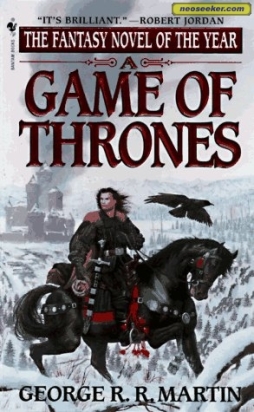 It’s a difficult question. Johnson’s careful to establish that he’s talking specifically about popular culture in his book. He even tries to establish that Charles Dickens, though popular for his day, had the reach and relative audience size of Masterpiece Theatre rather than The Sopranos. I think the analogy fails — Johnson looks only at Dickens’ sales figures, ignoring the pass-along audience, library readers, and, something frequently noted with Dickens, a ‘readership’ of illiterate people who had the text read aloud to them by a literate friend or family member. It is overall true, as I’ve said, that Johnson’s approach to complexity has nothing to do with questions of art or depth and makes no general statement about the merits of formula versus complexity as an artistic choice. Still, it seems to me that a few tentative statements can be made.
It’s a difficult question. Johnson’s careful to establish that he’s talking specifically about popular culture in his book. He even tries to establish that Charles Dickens, though popular for his day, had the reach and relative audience size of Masterpiece Theatre rather than The Sopranos. I think the analogy fails — Johnson looks only at Dickens’ sales figures, ignoring the pass-along audience, library readers, and, something frequently noted with Dickens, a ‘readership’ of illiterate people who had the text read aloud to them by a literate friend or family member. It is overall true, as I’ve said, that Johnson’s approach to complexity has nothing to do with questions of art or depth and makes no general statement about the merits of formula versus complexity as an artistic choice. Still, it seems to me that a few tentative statements can be made.
For one thing, it seems to me that bestsellers are undergoing some of the increase in complexity that Johnson talks about. On a plot level, the Harry Potter books always struck me as unusually complex, with a large cast and lots of moving parts. But probably the best example would be A Song of Ice and Fire. I wonder how many books of similar complexity can be found on bestseller lists before the last 20 years. There’s a vast number of characters with individualised relationships with other characters and other factions of characters. There’s also another layer in the way the books manipulate point-of-view and present information to the readers — we have to speculate about who’s wrong about what, and how bias affects each character’s understanding of other characters, and how the different attitudes to the past harmonise.
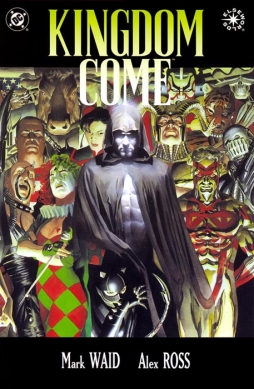 Without having done any survey of pop fiction, I think broadly there’s an increased awareness in contemporary writers of genre tropes. Writers of popular fiction are more likely to assume that audiences know the ins-and-outs of story and therefore play against expectations. There’s even a low level of metafictionality at times, characters knowingly approaching their adventures as stories to be told. I mentioned mashups above, and narrative mashups are exactly this kind of conscious approach to genre form that I mean: here are Jane Austen’s novels, which you know, so let us add zombies, which you also know, and see what fun we’ll have. Arguably even new genres are the product of this sort of layering — steampunk is in some ways a hybrid of previous genres, and a knowing play on Victorian adventure fiction. I’d also note that some better-known books interact with the increasing complexity of the internet in ways Johnson describes happening with other media. That is, fan forums and the like spring up analysing the text and finding new wrinkles. Again perhaps the best example of this is A Song of Ice and Fire. Fan theories proliferate; the text’s read and re-read in new ways.
Without having done any survey of pop fiction, I think broadly there’s an increased awareness in contemporary writers of genre tropes. Writers of popular fiction are more likely to assume that audiences know the ins-and-outs of story and therefore play against expectations. There’s even a low level of metafictionality at times, characters knowingly approaching their adventures as stories to be told. I mentioned mashups above, and narrative mashups are exactly this kind of conscious approach to genre form that I mean: here are Jane Austen’s novels, which you know, so let us add zombies, which you also know, and see what fun we’ll have. Arguably even new genres are the product of this sort of layering — steampunk is in some ways a hybrid of previous genres, and a knowing play on Victorian adventure fiction. I’d also note that some better-known books interact with the increasing complexity of the internet in ways Johnson describes happening with other media. That is, fan forums and the like spring up analysing the text and finding new wrinkles. Again perhaps the best example of this is A Song of Ice and Fire. Fan theories proliferate; the text’s read and re-read in new ways.
(It’s not a novel, or at least it wasn’t originally, but one of the best examples of all these traits united in a kind of written work might be the DC Comics series Kingdom Come. Set in the near future, it describes a conflict between the main heroes of the DC Universe, all of them now older; and it introduces a host of new background characters, most of them not named or given dialogue. At first glance it looks simple, but go online to a DC fan site or an annotation site like the one Jess Nevins put together and you see something different. All those unnamed characters have hints as to their origins, and their roots in the DC cosmology, embedded in their design. Look at their body language and eyelines when they appear in the backgrounds of the panels and you see there’s a host of secondary plotlines going on that are invisible to all but the most knowing reader. So there actually is the complexity of a vast number of characters with intricate inter-relationships that requires detailed dissection on the internet to understand.)
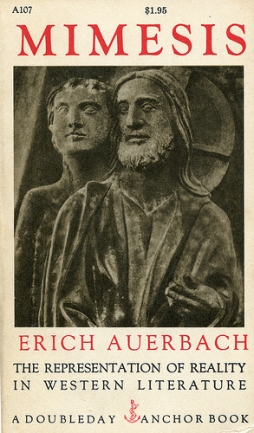 With all this said, and all due caveats, I wonder if the process of increasing complexity doesn’t also apply to more consciously literary fiction. One thinks of Eric Auerbach’s Mimesis, which charted the increased ability of the written word to depict reality with increasing fidelity and emotional depth — in other words, with increased complexity. You can look over the history of the novel and see writers struggling to expand what the form’s capable of; it’s not that books get better over time, but the form develops. Certainly one way to think of modernism is as an increased structural sophistication, incorporating a greater amount of fracturing, of fragmentation, of depth of reference.
With all this said, and all due caveats, I wonder if the process of increasing complexity doesn’t also apply to more consciously literary fiction. One thinks of Eric Auerbach’s Mimesis, which charted the increased ability of the written word to depict reality with increasing fidelity and emotional depth — in other words, with increased complexity. You can look over the history of the novel and see writers struggling to expand what the form’s capable of; it’s not that books get better over time, but the form develops. Certainly one way to think of modernism is as an increased structural sophistication, incorporating a greater amount of fracturing, of fragmentation, of depth of reference.
Which finally brings me around to the puzzle-books. This structure seems to fit nicely with modernist and especially postmodernist fiction. But there also seems to me to be a new development in these books — a development, I’d now say, of complexity. The way they seem to demand to be read in multiple ways, to insist not just on their own deconstruction but their reconstruction in new forms, the way they’re conscious of their polysemous meanings, seem to me to suggest that they’re in a tradition of increasing sophistication. Some of the books I’m thinking of are published as part of a genre, some aren’t, but in their different ways it may be that they’re reacting to increasingly sophisticated readerships. Or, put another way: that they’re the product of writers who are themselves sophisticated readers, trying out new ways to tell their stories.
With all that said, with the puzzle-books I think I see now put into some kind of context, a few thoughts on complexity and speculative fiction occur to me. I note that one thing Johnson doesn’t consider is way in which the ‘texts’ he discusses are read. That is, he notes that modern TV shows spark detailed critical conversations online, but I think you can argue that any given TV show, in fact any ‘text’ at all, will yield new insights if the audience is sufficiently motivated to interrogate it in depth. For example, you can read any story, however populist, as embodying trends in the society around it. But you can also read the show as having meanings that the original creators probably never intended. So old shows can give birth to much conversation; think of the many discussions and debates that have circulated around Star Trek, The Twilight Zone, or Doctor Who. And note that these are all genre shows. Think also of Twin Peaks, breaking new ground for TV. Or Babylon 5, which was not only a step forward in serial complexity in TV storytelling but also significant in the engagement the show’s primary creator had with the internet, with web sites like The Lurker’s Guide to Babylon 5 encouraging a new way of ‘reading’ TV. Johnson himself, in a 2006 afterword to his book, mentions the show as an omission often brought up to him, along with other shows like Buffy the Vampire Slayer. It’s interesting to note that Battlestar Galactica and A Game of Thrones both also seem to be major examples of the new plot-threading techniques Johnson identifies.
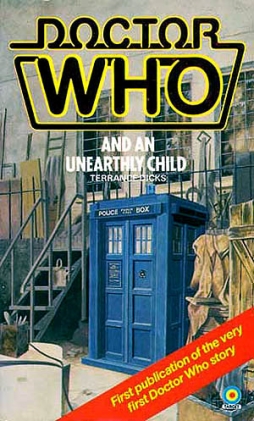 Is there anything specific to genre shows that plays into the development of complexity? It’s hard to think of non-genre shows that have lasted the way Trek and The Twilight Zone have (to say nothing of Doctor Who, which lasted in its first incarnation from the early 1960s until the late 1980s). It might be that genre shows benefit from having a kind of pre-motivated audience, fans ready and willing to dissect every possible resonance of an episode. Still, it’s not as though every SF show has lasted; at least, it seems to me that, say, Man From Atlantis or even Lost in Space haven’t really provoked equivalent conversations.
Is there anything specific to genre shows that plays into the development of complexity? It’s hard to think of non-genre shows that have lasted the way Trek and The Twilight Zone have (to say nothing of Doctor Who, which lasted in its first incarnation from the early 1960s until the late 1980s). It might be that genre shows benefit from having a kind of pre-motivated audience, fans ready and willing to dissect every possible resonance of an episode. Still, it’s not as though every SF show has lasted; at least, it seems to me that, say, Man From Atlantis or even Lost in Space haven’t really provoked equivalent conversations.
But I wonder if, in the end, science fiction and fantasy don’t inherently exist in a more complex relationship to the world than mimetic fiction. They have to build their own world, and therefore implicitly force the audience to compare that expressly fictional world with the world around them. To an extent that’s just what stories do; still, I wonder if there isn’t a particular way in which stories expressly stated to be fantastic demand a more complex relationship between the real and the fictional. With a fantasy story, you can’t escape into the comforting illusion that you’re reading about the actual world around you. Johnson himself seems to avoid thinking about the fantastic as complex — he dismisses the content of the Legend of Zelda games as being on their face lacking: “There’s no psychological depth here, no moral quandaries, no poetry.” This I think is lacking, because it betrays no understanding of the depth of fairy tales. I wonder in fact whether that depth isn’t best approached as a kind of complexity of its own: a complexity of myth. I don’t know if it plays in to the sort of complexity Johnson identifies, but it seems to me to be worth considering.
Matthew David Surridge is the author of “The Word of Azrael,” from Black Gate 14. His ongoing web serial is The Fell Gard Codices. You can find him on Facebook, or follow his Twitter account, Fell_Gard.
[…] wrote a little while ago about Steven Johnson’s book Everything Bad Is Good For You, which suggests […]